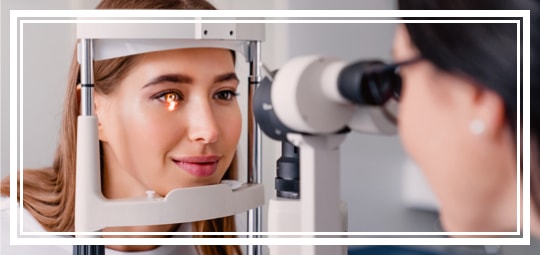Get Help Managing the Health of Your Eyes
Not only can eye disease permanently rob you of your vision, but they can also develop without showing any symptoms. This is why your optometrist always checks your eye’s health during a comprehensive eye exam to help determine if you’re at risk of developing an eye disease.
Eye exams are paramount to addressing and managing eye diseases. Please, book your next eye exam today and get help managing your eye health.















